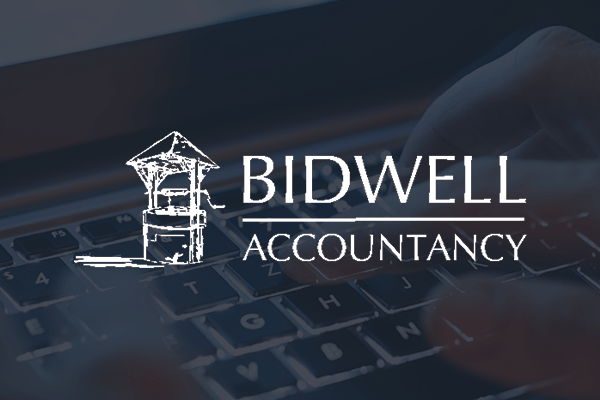February Newsletter

February’s news starts with information about the forthcoming Spring Budget and a few preliminary predictions of what it might contain. We’ve included some useful notes on how NICs change after you reach state pension age (currently age 66 for men and women). As we near the end of the 2023-24 accounting period there are a few payroll admin necessities to be completed which we’ve listed in brief. Our final article is a handy reminder of who needs to register for self-assessment, including some key dates you’ll need to know about. We finish with our regular section on deadlines and diary dates that will take you up to mid March.
Our communication includes some articles that you might need further help with - to relate the information specifically to your own circumstances. Please do get in touch if we can clarify anything or guide you in any way.
Spring Budget 2024
The Chancellor of the Exchequer, Jeremy Hunt has confirmed that the next UK Budget will take place on Wednesday, 6 March 2024. This will be the Chancellor’s second Budget and will include the government's tax and spending plans as well as new growth and borrowing forecasts. Various pundits are suggesting that selecting a Budget date in early March leaves the possibility of a general election as early as May 2024. The next general election is required to take place by January 2025.
There may be a round of new tax-cuts and changes as the government works to attract voters and narrow the gap against Labour. Details of all the Budget announcements will be made on a special section of the GOV.UK website which will be updated following completion of the Chancellor’s speech.
The Budget will be published alongside the latest forecasts from the Office for Budget Responsibility (OBR). This forecast will be in addition to that published for the Autumn Statement and fulfil the obligation for the OBR to produce at least two forecasts in a financial year, as is required by legislation.
The OBR has executive responsibility for producing the official UK economic and fiscal forecasts, evaluating the government’s performance against its fiscal targets, assessing the sustainability of and risks to the public finances and scrutinising government tax and welfare spending.
National Insurance and tax after State Pension Age
If you have reached the State Pension age and continue to work, in most cases, you no longer need to pay National Insurance Contributions (NICs).
At State Pension age, the requirement to pay Class 1 and Class 2 NICs ceases. However, you will remain liable to pay any NICs due to be paid to you before reaching the State Pension age. If you continue working, you need to provide your employer with proof of your age.
Your employer remains liable to pay secondary Class 1 employer NICs. If you would rather not provide proof of age to your employer, you can request a letter (known as an age exception certificate) from HMRC confirming you have reached State Pension age and are no longer required to pay NICs.
If you are self-employed you will need to pay Class 4 NICs for the remainder of the year in which you reach State Pension age but will be exempt from the following year.
HMRC provides the following example. Someone who reached the State Pension age on 6 September 2023 will stop making Class 4 contributions on 5 April 2024 and pay their final Class 4 bill by 31 January 2025, together with any Income Tax due.
If you have overpaid NICs you can claim the excess back from HMRC.
Year end payroll reporting
It is not that long until the current 2023-24 tax year comes to an end and there are a number of year end payroll chores that must be completed. This includes sending a final PAYE submission for the tax year. The last Full Payment Submission (FPS) needs to be submitted no later than the last payday for your employees of the 2023-24 tax year.
It is also important that employers remember to provide employees with a copy of their P60 form by 31 May 2024. A P60 must be given to all employees that are on the payroll on the last day of the tax year - 5 April 2024.
The P60 is a statement issued to employees after the end of each tax year that shows the amount of tax they have paid on their salary. Employers can provide the P60 form on paper or electronically. Employees should ensure they keep their P60s in a safe place as it is an important record of the amount of their earnings and tax paid.
In addition, a P60 is required in order that an employee can prove how much tax they have paid on their salary.
For example:
- to claim back overpaid tax;
- to apply for tax credits; and
- as proof of your income if you apply for a loan or a mortgage.
Employees who have left their employment during the tax year do not receive a P60 from their employer, as the same information will be on their P45.
The deadline for reporting any Class 1A National Insurance contributions and submitting P11D and P11FD(b) forms to HMRC for the tax year ending 5 April 2024 is 6 July 2024.
Do you need to register for self-assessment?
There are a number of reasons why you might need to complete a self-assessment return. This includes if you are self-employed, a company director, have an annual income over £150,000 and / or have income from savings, investment or property. The £100,000 threshold for self-assessment threshold change for taxpayers taxed through PAYE only, increased from £100,000 to £150,000 with effect from 6 April 2023.
Taxpayers that need to complete a self-assessment return for the first time should inform HMRC as soon as possible. The latest date that HMRC should be notified is by 5 October following the end of the tax year for which a self-assessment return needs to be filed.
HMRC has an online tool www.gov.uk/check-if-you-need-tax-return/ that can help you check if you are required to submit a self-assessment return.
You are required to submit a self-assessment return if any of the following apply:
- you were self-employed as a ‘sole trader’ and earned more than £1,000 (before taking off anything you can claim tax relief on)
- you were a partner in a business partnership
- you had a total taxable income of more than £150,000 in 2023-24 (£100,000 in 2022-23)
- you had to pay Capital Gains Tax when you sold or ‘disposed of’ something that increased in value
- you had to pay the High Income Child Benefit Charge
You may also need to send a tax return if you have any untaxed income, such as:
- money from renting out a property
- tips and commission
- income from savings, investments and dividends
- foreign income.
Tax Diary February/March 2024
1 February 2024 - Due date for Corporation Tax payable for the year ended 30 April 2023.
19 February 2024 - PAYE and NIC deductions due for month ended 5 February 2024. (If you pay your tax electronically the due date is 22 February 2024)
19 February 2024 - Filing deadline for the CIS300 monthly return for the month ended 5 February 2024.
19 February 2024 - CIS tax deducted for the month ended 5 February 2024 is payable by today.
1 March 2024 - Due date for Corporation Tax due for the year ended 31 May 2023.
2 March 2024 - Self-Assessment tax for 2022-23 paid after this date will incur a 5% surcharge unless liabilities are cleared by 1 April 2024, or an agreement has been reached with HMRC under their time to pay facility by the same date.
19 March 2024 - PAYE and NIC deductions due for month ended 5 March 2024 (If you pay your tax electronically the due date is 22 March 2024).
19 March 2024 - Filing deadline for the CIS300 monthly return for the month ended 5 March 2024.
19 March 2024 - CIS tax deducted for the month ended 5 March 2024 is payable by today.

Unit 157, Milton Keynes Business Centre,
Foxhunter Drive, Milton Keynes,
Buckinghamshire, MK14 6GD
Bidwell Accountancy





